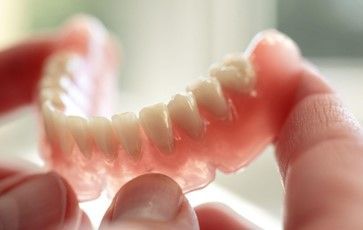Debunking 3 Common Tooth Extraction Myths
Characterized as the removal of a tooth from its socket, an extraction is an invasive procedure. However, the removal of one or more teeth may be crucial to your smile's health and development. Even though an estimated 20 million
teeth are extracted each year in the United States, most people do not fully understand this common dental procedure.
If you or a loved one will be undergoing a tooth extraction, proper understanding is essential. This guide and your dentistwill help you understand the truths behind a few common tooth extraction myths.
1. Wisdom Teeth Are Extracted Only
Many people believe that the only teeth that need to be extracted are wisdom teeth. But in addition to the 10 millionwisdom teeth removed each year, many other teeth are extracted as well. You might need tooth extraction for several reasons.
For example, your dentist may recommend removal of a tooth severely damaged by tooth decay or broken in an accident or injury. Even though root canal treatments may help, they are not always effective for saving the tooth. Therefore, removing the tooth will be the only way to stop the infection and pain.
Another reason for extraction is if a tooth struggles to erupt completely. In this case, the tooth may become impacted in the gum tissue, causing enormous pressure and pain. Extracting the tooth will stop the pressure and discomfort.
Extractions of one or more teeth are also common before orthodontic treatment. If your teeth are too crowded, they may push on adjacent teeth, shifting teeth and your underlying bite. This problem results in overbites, underbites, or crossbites that require orthodontic care.
2. Extractions Are Painful
Another myth people believe is that a tooth extraction is painful. While you may feel some pressure during the process, extractions should not cause you any pain.
Depending on the type of extraction you undergo, your dentist will use an anesthetic of sorts to numb your mouth. Before a simple extraction, your dentist will inject a local anesthetic injected into various areas of your mouth to numb your teeth and gum tissue. You may feel a slight prick of the needle but no actual pain.
Once your mouth is numb, your dentist uses a special tool to loosen the tooth before removing it using forceps. Pressure is common while the dentist loosens and pulls the tooth from its socket.
If you require a surgical extraction, local anesthesia and intravenous anesthesia may be used to numb your mouth and relax your body and mind so you do not experience any anxiety.
Small incisions are then made into the gum tissue so your dentist can extract the tooth and even parts of bone if necessary. You will most likely be completely asleep and unaware of the extraction. After the surgical extraction, light swelling and some slight discomfort of the mouth and jaw are normal.
3. Replacing an Extracted Tooth Is Not Necessary
Finally, many people believe they don't need to fill a space left in their mouth after an extraction. Unfortunately, not replacing an extracted tooth can lead to further dental complications.
While surprising to learn, teeth left behind in your mouth will start to shift, moving into empty spaces after an extraction. This shifting can lead to crooked teeth and misaligned bites, affecting the look of your smile.
In addition, your teeth stimulate and support your jaw bone. Without replacing missing teeth, your jaw bone will not have this stimulation, which could cause the bone to deteriorate, affecting your appearance and your ability to chew and speak properly.
A tooth extraction is one of the most common dental procedures, so you're likely to need one at some point in your life for the sake of your dental health. For more information on extractions or other dental treatments, contact Advanced Dental Care.










